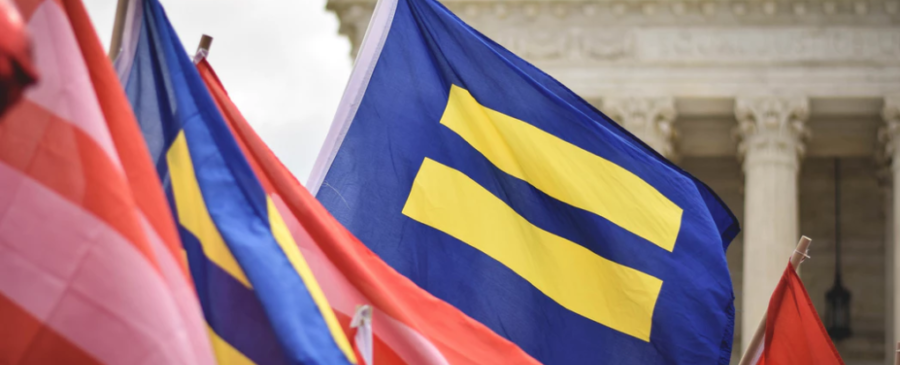Marriage Equality and the Great Christian Letdown

Note: I wrote this in 2015 the day after the supreme court decision that struck down the ban on same sex marriage. This was in response to the public social media outrage by my fellow christians. It was shared nearly 3.000 times on Facebook.
You are a Christian. You love God, you love people, and you want people to be equally protected under the law. You have friends who are gay and they feel accepted by you. You completely expected the eventual legalization of gay marriage in all states.
Yet, when the ruling came, you felt an unexplained letdown.
While everyone else was celebrating and painting their social media with rainbow colors, you couldn’t help feel a strange sinking feeling.
Worse yet, the absence of your rainbow avatar suggests you might be one of the religious nuts that unfortunately has access to a keyboard and internet and no hobbies. How do you explain this collective disappointment felt in many Christians who largely seek equality and acceptance for all?
A long time ago, a wise friend pointed out something life changing when I was dealing with a major disappointment in my life:
Disappointment exposes misplaced hope.
Could it be that Christians had put their hope into things that were never capable of fulfilling their expectations?
I suggest the unexplained letdown many Christians are feeling is not related to issues of equality, sin or even homosexuality. It’s the sting that their hope was misplaced. The Supreme Court decision just exposed the misplaced hope of many Christians.
What are those places of misplaced hope?
#1 Christians put hope into the belief that America was a Christian Nation
America’s founders were deeply religious. Many of the principles found in Christianity can be found in the founding documents of this country. It was a natural conclusion for Christians to view America as a Christian nation. This is not the case and the Supreme Court ruling threw a fresh bucket of cold water on that notion.
We must not forget that our country was founded by seeking religious and political freedom. The founders sought to ensure that the country would never have a state sponsored religion – even Christianity.
#2 Christians put hope into regulating morality through law
I wonder how many Christians fear that by legalizing gay marriage they have legalized sin. It was highly convenient for Christians to have many American laws be so similar to many judeo-christain principles.
No longer do Christians get the assistance of some laws to regulate their favorite sins. (Yes, I do mean favorite as we have no laws regulating the others sins such as gossip, slander, adultery and drunkenness).
Fewer and fewer laws coincide with Christian ideals. We have to accept our world less restrictive when it comes to morality and that makes Christians uncomfortable.
The truth is, people are going to choose the live their own life however they choose – yet it seems Christians had put hope into helping regulate America’s sin through law. People will have to choose to live out Christian morality apart from the rule of law.
#3 Christians put hope into the belief that laws encourage Christianity
Jesus seemed pretty convinced the best way to transform people was through hearts, not laws. Perhaps Christians believed that making sin illegal would assist sinners in learning about God. I don’t know.
To Jesus, it was pointless if people had right behavior without the right heart. Jesus aims for the heart of people, not their behavior. He rebuked Pharisees who strived to live perfectly, yet embraced every imperfect person who sought relationship.
This is an important reminder that not a single law will ever draw people to Christ. Laws will not encourage Christianity. No one’s salvation will be swayed in either direction because of the Supreme Court’s ruling. Christians must remember the Bible says that people are drawn to God by demonstrations of love not the creation of laws.
#4 Christians put hope in remaining comfortable
If you are a Christian today, you have no shortage of likeminded people and are largely uncontested in the exercise of faith – and hopefully that continues.
However, if you were a Christian during the times of the New Testament, you were part of a radical minority of outcasts. The Bible describes Christians in culture as aliens and strangers, and as foreign citizens not of this world. You would be hard-pressed to look at the average American Christian and draw that similarity today.
Being a Christian didn’t really make you stand out too much in America – especially with several concepts of Christian morality conveniently coinciding with various laws.
As those laws evolve and society pushes boundaries of previously defined morality,vChristians will have to stand on their own. Christians will have to demonstrate what they are for instead of what they are against.
Certainly there are bad Christians whose reactions are extreme, hurtful and entirely unbiblical. But for others (and I believe many Christians), there is an inward letdown that can be misinterpreted as not loving everyone and not supporting equality.
This letdown has nothing to do with homosexuality or even love. It has everything to do with the realization that we as Christians have put our hope and trust into things that never deserved it. It can be disheartening to realize you placed so much into something that just came crashing down.
I knew before the Supreme Court ruling that nothing would change how I live and how I see people. But what has changed is recognizing other places of misplaced hope into institutions, people, nations and even myself.
Let me know if you identify with these ideas of misplaced Christian hope in the comments.
